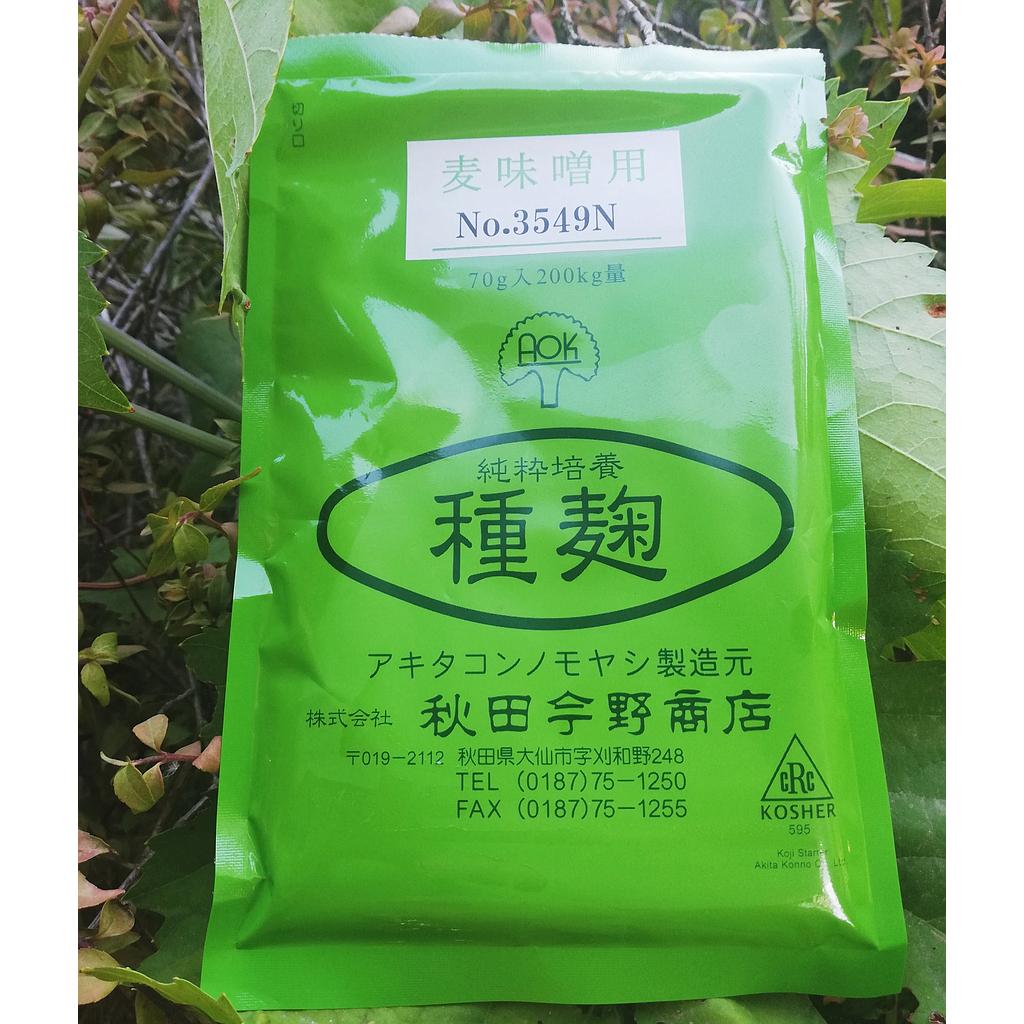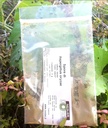Spores of Aspergillus oryzae
Tane-koji
Starter (not for direct human consumption)
If the product is not available, you can tell us your interest, so that we organise better. Write to ordini@nesler.it
Product intended for use by competent persons.
The spores we offer are the same that we use in the company to produce our Koji. They come from a historic Japanese producer who also guarantees us the absence of GMOs and foreign substances. This type of spore is traditionally used to produce barley-Koji, but can also be used with any other cereal.
4 g is sufficient to inoculate about 10 kg of grain.
8 g is sufficient to inoculate about 20 kg of grain.
70 g is sufficient to inoculate about 200 kg of grain.
General instructions for producing Koji:
Wash, soak and steam the cereal. Do not inoculate until the temperature has dropped below 40 °C. Keep at 30 °C and 80-90% humidity for 24-48 hours until the mycelium has developed sufficiently.
Koji is a cereal enriched with enzymes and aromas, thanks to the activity of a specific mycelium, called Koji-kin in Japanese. It is generally used as an ingredient for the production of miso, shio-Koji and other flavourings. The Koji (generally rice) is also the basis for the production of sake and amazake. In contemporary creative cuisine, Koji is increasingly used as an ingredient and is often used unconventionally. Tane-Koji (spores of Aspergillus oryzae) should be kept preferably in the refrigerator to maintain vitality.
Ingredients: spores of Aspergillus oryzae.
Keep in the refrigerator if possible.
Produced by:
Akita Konno
Japan
Packaged by:
Nesler società semplice agricola
strada Sterpaio snc
Viterbo (VT)
Koji comes from the activity of the mycelium of Aspergillus oryzae, the fungus that transforms cereals into Koji. It is a microbial process comparable, in some ways, to malting, because through the activity of microbes the enrichment of the cereal with enzymes is obtained, similar to that obtained with germination in the case of malt production. The Koji has a delicious and inebriating scent, which is also partly retained in the dried product. The protease enzymes contained in the cereal can help develop the umami taste thanks to their proteolytic activity, while amylases can hydrolyze starches, transforming them into simple sugars.
We only use local, selected and controlled raw food materials. We do not use soy, products containing GMOs or synthetic chemicals. All the ingredients used are indicated in the sheets and on the label, with no exclusion.
Our understanding of "local" takes into account the climate and the real movements we make. Furthermore, we try to work with the most conscientious farmers in the area. What we absolutely prefer is to produce raw food materials ourselves.
What is most important to us is a high level of respect for Earth and Man and high levels of quality.
We prefer quality to the abstract concept of "local", we prefer to know suppliers, we prefer to strive for quality, rather than passively accept labels. We prefer the small to the big producer and... We are realistic. The compromise is sometimes to go further, rather than to lower the quality level. Our "local" is a "relative local" that makes us use whole Sicilian salt, Tuscan peas, cereals grown in Tuscia, organic hazelnuts grown a few kilometers away, and so on.



